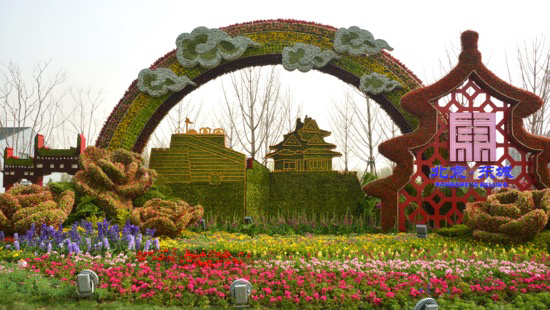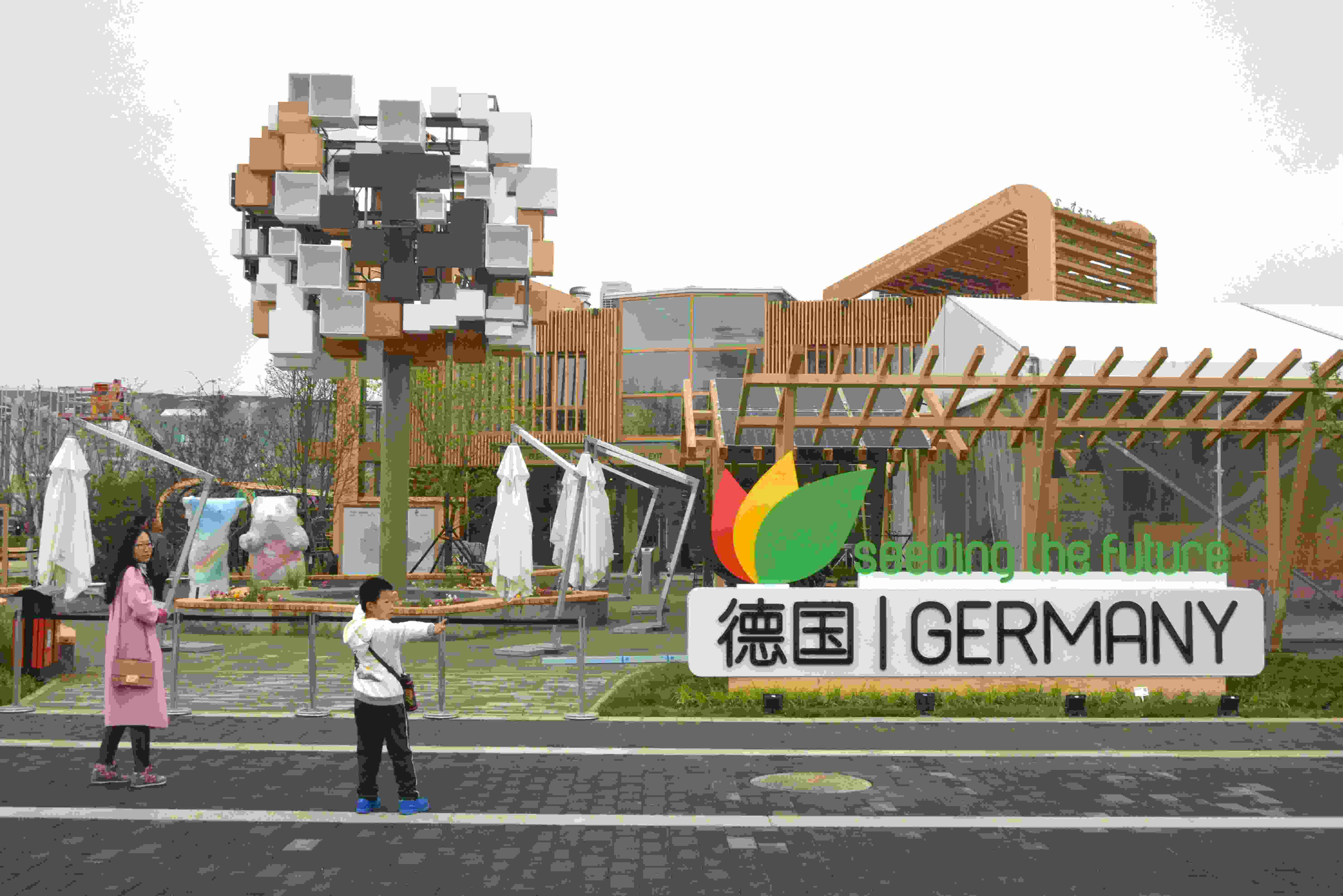
Opinion
10:31, 25-Apr-2019
Horticultural Expo to show China's will to create better ecological environment
Tracy Chen

Editor’s note: Tracy Chen is an assistant research fellow from the School of International Development at UEA. The article reflects the author’s views, and not necessarily those of CGTN.
From April 29 to October 7, more than 16 million visitors from China and abroad are expected to come to the 2019 Beijing International Horticultural Exhibition. The Expo will fully display the latest varieties, technologies, productions and achievements in the horticulture of the world.
People will enjoy a grand feast of exotic flowers and horticultural products coming from more than 100 countries and regions. The 162-day exhibition will also be a big stage to show China’s efforts and achievements of ecological civilization construction.
During the Two Sessions in 2019, Chinese President Xi Jinping emphasized that the protection of the ecological environment and the development of the economy are fundamentally integrated and mutually reinforcing.
China's economy is now in the process of changing from high-speed development to high-quality one. Pollution prevention and control as well as environmental governance are major barriers to be crossed. In the government's work report, Chinese premier of the State Council Li Keqiang pointed out that China needs to strengthen pollution prevention and control, to enhance ecological improvement, and to make big advances in green development.
In 2013, China promulgated the “Air Pollution Prevention and Control Action Plan,” the toughest of its kind to combat air pollution. According to the Plan, by 2017, the concentration of inhalable particles in cities at prefecture level and above must be decreased by more than 10 percent compared with 2012; the concentration of fine particles in Beijing, Tianjin, Hebei, the Yangtze River Delta, and the Pearl River Delta must be decreased by 25 percent, 20 percent and 15 percent respectively, and the average annual concentration of fine particles in Beijing must be controlled at about 60 micrograms/cubic meter. This goal was achieved in 2017.

The Germany pavilion during a trial run ahead of the 2019 Beijing International Horticultural Exhibition at the Yanqing District in Beijing, China, April 20, 2019. /VCG Photo
The Germany pavilion during a trial run ahead of the 2019 Beijing International Horticultural Exhibition at the Yanqing District in Beijing, China, April 20, 2019. /VCG Photo
However, with the increasing downward pressure of the economy, the priority of pollution control and environmental protection may be reduced, whilst the cost of pollution control will be higher as the work of prevention and control of air pollution goes on. It will be more difficult to maintain the sustainable progress of conservation culture. Since the second half of last year, the development of heavy chemical industry has been accelerating. The pressure of controlling emissions and pollution may increase.
In the first quarter of this year, the added value of six high-energy-consuming industries was higher than that of industries above scale. This will increase the difficulty of energy saving and emission reduction to a certain extent. China needs to consolidate and expand the gains made in the fight to keep the skies blue and stronger moves should be taken to control the emission of sulfur dioxide, nitrogen oxide and nitrogen oxide.
In recent years, China has made great efforts in the treatment of black, malodorous water bodies. The Ministry of Housing and Urban-Rural Development (MHURD) and the Ministry of Ecology and Environment have launched special action on black, malodorous water bodies since 2018.
According to the information released by the MHURD in 2018, 2,100 black, malodorous water bodies have been identified and among them, 1,120 have been treated and rehabilitated. Nearly half of the black, malodorous water bodies are still waiting to be treated.
Comprehensive measures should be taken to prevent well-managed rivers from turning black and stinky again. In order to improve the quality of the water environment in an all-round way and realize a win-win situation of water environment protection and urban development, relevant departments must work together to formulate a long-term integrated plan.
Still, the Chinese government emphasizes the importance of sorting in solid waste and urban garbage disposal, promoting green and environmentally-friendly industries and strengthening ecosystem protection and restoration. All these goals have shown that China is determined to strengthen ecological protection and to fight against pollution.
For China, there is a long process of effort ahead to solve the problems of ecological environment. The 2019 Beijing International Horticultural Exhibition will be a good platform for people around the world to share the concept of green, low-carbon, environmentally-friendly production and living. “Live Green Live Better,” a good ecological environment is welfare for everyone.
To respect nature, to protect nature, to be integrated into nature, and to jointly build a beautiful home: It's not only the aspiration of China.
(If you want to contribute and have specific expertise, please contact us at opinions@cgtn.com.)

SITEMAP
Copyright © 2018 CGTN. Beijing ICP prepared NO.16065310-3
Copyright © 2018 CGTN. Beijing ICP prepared NO.16065310-3